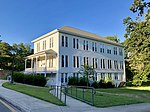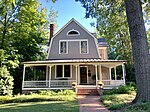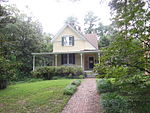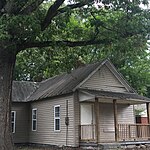The Duke lacrosse case was a widely reported 2006 criminal case in Durham, North Carolina, United States, in which three members of the Duke University men's lacrosse team were falsely accused of rape. The three students were David Evans, Collin Finnerty, and Reade Seligmann. The accuser was Crystal Mangum, a student at North Carolina Central University who worked part-time as a strip tease dancer. She alleged that the rape occurred at a party hosted by the lacrosse team, held at the Durham residence of two of the team's captains, and where she had worked on March 13, 2006.
Investigation and resolution of the case sparked public discussion of racism, sexual violence, media bias, and due process on campuses. The former lead prosecutor, Durham County District Attorney Mike Nifong, ultimately resigned in disgrace, and was disbarred and briefly imprisoned for violating ethics standards.
On April 11, 2007, North Carolina Attorney General Roy Cooper dropped all charges, declaring the three lacrosse players "innocent" and victims of a "tragic rush to accuse".Cooper described Nifong as a "rogue prosecutor"; the district attorney withdrew from the case in January 2007 after the North Carolina State Bar filed ethics charges against him. In June 2007, Nifong was disbarred for "dishonesty, fraud, deceit and misrepresentation", making him the first prosecutor in North Carolina disbarred for trial conduct. Nifong served one day in jail for lying about sharing DNA tests (criminal contempt); he had not given results to the defense team. The lab director said it was a misunderstanding and Nifong claimed it was due to weak memory.While DNA analysis did not show evidence from any of the men she accused, Mangum continued to insist she was sexually assaulted that night. She was not charged for her allegations.Cooper noted several inconsistencies between Mangum's accounts of the evening, and the alibis offered by Seligmann and Finnerty, which was supported by forensic evidence. The Durham Police Department was strongly criticized for violating their own policies by allowing Nifong to act as the de facto head of the investigation; using an unreliable suspect-only photo identification procedure with Mangum; pursuing the case despite vast discrepancies in notes taken by Investigator Benjamin Himan and Sgt. Mark Gottlieb; and distributing a poster that appeared to presume the suspects' guilt shortly after the allegations were made public.Seligmann, Finnerty, and Evans brought a civil lawsuit against Duke University, which was settled. The university paid approximately $20 million to each claimant. The claimants also sought further unspecified damages and called for criminal justice reform laws in a federal civil rights lawsuit filed against the City of Durham and its police department.











